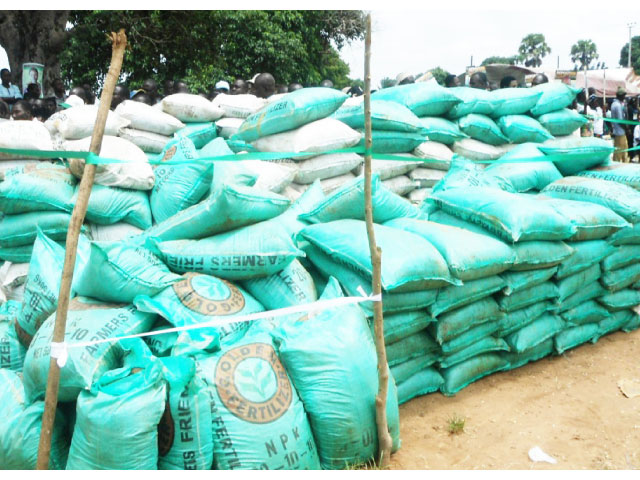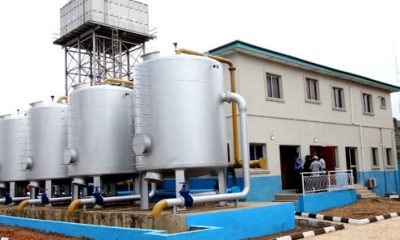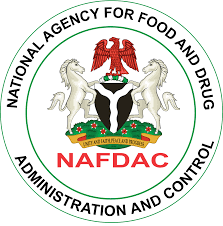Agriculture
FG to Boost Nigeria’s Wheat Production Capacity by 2.7m Metric Tonnes Annually

The federal government says it is working to increase the country’s annual wheat production capacity by 2.7 million metric tonnes annually.
Executive Secretary National Agricultural Land Development Authority (NALDA), Prince Paul Ikonne who disclosed this to journalists in Abuja on Monday, said the idea was apart from reducing the nation’s dependence on wheat import, it would also crash the price of wheat, save the country from paying huge money on imports and create job opportunities for Nigerians.
Prince Ikonne, who was speaking while playing host to Gombe State Governor, Muhammad Inuwa Yahaya, said the effort by the Authority to expand wheat production will also make flour accessible to people.
Ikonne said the projected target is achievable, noting that the country has all it takes to achieve the targeted wheat production with the willingness of farmers.
“This is very important because nature has also made it that it is very urgent for Nigeria to take advantage of what is happening in the world towards producing our own wheat, maize and other crops,” he said.
“We have the potential, the manpower, good weather and others. President Muhammadu Buhari has resuscitated NALDA to make sure we get the land, get people motivated and make our farmers get back to farming.
“We have procured some processing machines so that it will be easy for farmers to start wheat processing. The small and big flour Mills also need the raw materials.
“We have resolved in Gombe and with the Governor’s visit, we can do more, the Governor has pledged 4,500 hectares for our aggressive production that NALDA is collaborating with the Central Bank of Nigeria (CBN), the result we got shows that it’s achievable.”
Speaking further, Ikonne noted that NALDA has divided its plant projects into two parts where they are working with universities to get land for food production.
The Executive Secretary noted that the Authority is working with the Ministry of Education through the Minister, Adamu Adamu to get 30,000 hectares of land from Universities that are not being used.
According to the NALDA boss, the land will be divided for maize and cassava and wheat production.
He said: “As we speak, we are clearing 100 hectares land in Federal University of Technology Owerri (FUTO) Imo State, we already have 100 hectares of land at University of Agriculture, Umidike and we have already cleared and planted plantain at one of the universities in Aba, Abia State.
“We are grateful to God and we thank President Buhari for his mindset of putting Nigerians on the path of sustainability for the country to be food sufficient.
On his part, Governor Inuwa while commending NALDA’S effort towards achieving good security, said Gombe State is already in line with the target.
He said: “We cultivated 200 of wheat this year and the result is good, that is why we are working with NALDA to expand our production. With the recent development of the Russian – Ukraine war, we need to do more to stop importation of wheat.
On sustainability, Inuwa noted that the will expand and sustain with production with the support of the people for the country to be self-sufficient.
“Gombe is an agrarian state, 80 percent of the people are into agriculture, we are ready to add value from production to processing,” the governor promised.
Agriculture
Experts urge Media to Present Information on Genetically Modified Foods Objectively

The National Biotechnology Research and Development Agency (NBRDA) has urged the media to stand in the communication gap in favour of biotechnology development n Nigeria, re-affirming the safety in the consumption of genetically modified foods.
Prof. Abdullahi Mustapha, Director General/Chief Executive Officer of the agency, affirmed this during a one-day media field trip to NBRDA FARMS on Monday in Abuja.
The trip was organised by Open Forum On Agricultural Biotechnology (OFAB), an initiative of the African Agricultural Technology Foundation (AATF).
“Today, you shall be visiting our TELA Maize farms. This provides an exciting opportunity to see for yourselves what we have been doing here and equally gather your findings on what you have seen today and then take back the message to the people to quell some of the miscommunications about Genetically Modified Organisms (GMO) crops.
“TELA Maize hybrid varieties were developed to address some of the pressing challenges facing our farmers, including pests and diseases that can significantly reduce crop yields,” he said.
According to him, the production of the TELA MAIZE hybrid was done through the combined efforts of scientists at the Institute for Agricultural Research (IAR), Zaria in collaboration with stakeholders in key institutions such as NBRDA, NBMA, NASC, and the AATF Research Team.
“We are here to showcase our demonstration farms of genetically modified versions of commonly consumed crops developed by our scientists that have enjoyed rave reviews from the global world of science and the agricultural sector.
“These experts have worked tirelessly to ensure that this crop is not only high-yielding but also safe for human consumption,” he added.
He noted that the National Biosafety Management Agency (NBMA) has been instrumental in ensuring the safety and efficacy of TELA Maize which is believed to have the potential to transform the agricultural landscape in Nigeria and beyond.
Dr Jean Baptiste, the Regional Representative of the African Agricultural Technology Foundation, said that GMOs were aimed at leveraging the potential of biotechnology to develop a system that will help farmers.
He said Tella maize is a variety, developed using biotechnology methods to control insects.
“It also checks the resistance to drought and controls army worms, and stem borers in maize.
“At the end of the day, the benefits are enormous because it helps farmers increase yield and to be able to meet food security issues.
Dr. Francis Nwankwo, a TELA MAIZE developer from the African Agriculture Technology Foundation (AATF) explained the processes saying Tela maize passed through a genetic transformation that happens at the DNA level .
“They are not manufactured. What happens is we identify genes that can inhibit the infestation or reduce the infestation of some lepidoptera pests that affect some crops.
“So when we identify those genes we incorporate them into the DNA of maize thereby making it the maize, plus the genes.
“That way we increase the genes and reduce the struggles that our conventional maize go through on our farms like the stem borrower and others,” he said.
In her presentation, Dr Rose Gidado, Director, Agricultural Biotechnology Department, NBRDA, explained that many countries have derived huge benefits from TELA maize citing countries such as the U.S. and Canada.
“We actually brought you here so you could see the disparities between the TELA MAIZE and the non-TELA MAIZE species, and the environment which is far different from what we see on social media.
“We have other crops like beans that have actually been through the same gene transfers and are doing perfectly well and are safe for consumption,” she said.
She, therefore, urged the media to be on the guard in view of a lot of misinformation going round on social media and take responsibility in providing related information to the public adequately and objectively. (NAN)
Agriculture
Epe LG Empowers 200 Farmers to Boost Food Production

Ms Surah Animashaun, the Chairperson, Epe Local Government, has empowered 200 farmers with cash and other agricultural inputs to boost food production in the area.
Animashaun distributed the agricultural inputs to the beneficiaries at the council secretariat in Epe on Thursday in Lagos.
She said the initiative was aimed at supporting farmers in order to boost food production in the various communities of the council.
Animashaun said the farmers who benefitted from the gesture are expected to be considerate in their price fixing after harvest to ensure the affordability of food for all Nigerians.
“With the economic situation now and the support being giving to you, farmers should be reasonable in fixing prices after harvest to ensure that ordinary Nigerians source food at a more convenient price nationwide.
“We are here to give you support for your farming activities today, we expect that you reciprocate tomorrow by selling at a more affordable price to the people tomorrow,’’ she said.
Animashaun explained that each of the benefiting farmers received N50,000 and essential grains such as maize and sorghum.
She said the council would continue to support the farmers for them to be strong in farming activities.
Animashaun also used the medium to highlight her administration’s ongoing efforts in the extension of palliatives to other sectors of the economy.
She urged the communities in the area to maintain harmony, love, hospitality, and compassion, particularly in the face of the present economic challenges.
Also speaking, Mr Sikiru Owolomoshe, the Vice Chairman of the council, urged the farmers to take advantage of the gesture to improve their activities in order to encourage others.
Mr Olayinka Kazeem, the Secretary of Epe Farmers and a beneficiary, expressed gratitude to the council chairperson and her management.
“This is the first time we are witnessing this kind of programme and it is coming at a critical period when many states are facing food shortage,’’ he said.
He assured that the beneficiaries would do their best to ensure the objective was achieved.
Mr Ahmed Surakat, the Public Relations Officer of Lagos State Fishermen Cooperative Association, and Mrs Kafilat Animashahun beneficiaries, extended their gratitude to the council chairman for her unwavering support to farmers.
Earlier, the President of the Epe Farmers Union, Mrs Aminat Shabi, lauded Animashaun for the comprehensive support to other agricultural value chain such as fish farmers and livestock producers.(NAN)
Agriculture
Food Security Achievable Through RAAMP, Says National Coordinator

By Tony Obiechina, Abuja
The Rural Access and Agricultural Marketing Project (RAAMP) has been described as an appropriate and very effective means of realising food sufficiency and security across the country.
The National Coordinator of RAAMP, Engr Aminu Bodinga Mohammed who made the assertion during the 7th Joint World Bank and French Development Agency Implementation Support Mission of RAAMP at the Shehu Musa Yar’Adua Centre, Abuja, pointing out that most urban centers derive their supply of food from farms, which are located at the rural communities.
His words: “the primary objective of RAAMP is to improve rural roads and trading infrastructure through to boost food production.
Therefore the successful implementation of this project could go a long way towards guaranteeing food sufficiency and security across the country”.He solicited for concerted efforts by all stakeholders to ensure an all-round success of the project.
Aminu noted that the mission was to evaluate the current implementation status, milestones as well as challenges faced by the 19 states participating in the project and announced that arrangements had reached an advanced stage for the commencement of civil works on agro-logistics centers (ALCs) latest by September, 2024 with 23 major contracts that would be awarded across the states.
ALCs refer to market hubs that have been prioritised for transformation to ultra-modern standards at various locations across the country , notably in rural communities to empower and enhance the livelihoods of the people.
Also speaking, the Task Team Leader of the World Bank, Mr. Rakeesh Tripathi hinted that a scale-up was being mooted for the project but emphasized that only states which must have established and operationalised the Rural Access Road Agency (RARA) and State Road Fund (SRF), backed up with the required standing on counterpart funds would be eligible to access the scale-up funds.
He therefore advised all states to take advantage of the mission and get the needed support to tackle every challenge facing their State Project Implementation Unit (SPIU), adding that all the 36 states and the Federal Capital Territory would be encouraged to embrace the scale-up project.
Highpoints of the exercise were presentations by the State Project Coordinators of the respective participating states, question and answer sessions, comments and observations, among other inputs by the stakeholders.
The Task Team Leader of the French Development Agency, AFD; Consultants from the World Bank; the Federal Project Management Unit, FPMU as well as State Project Implementation Units, SPIUs of RAAMP also attended the mission.

























